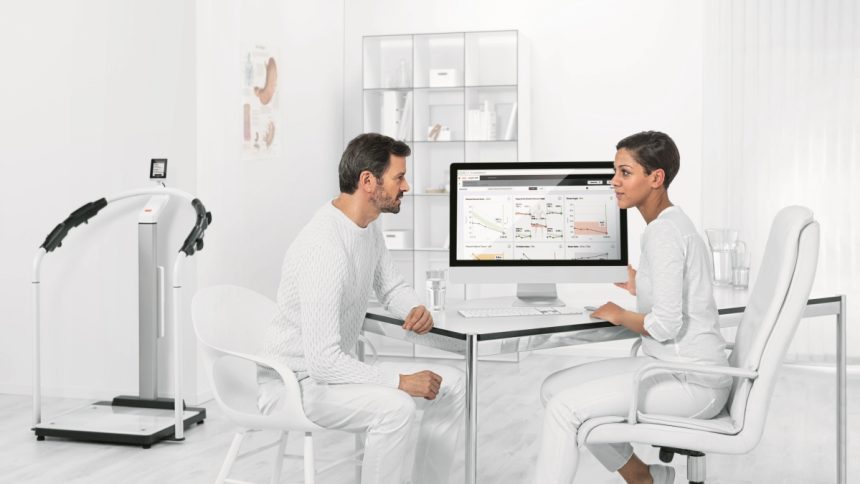In the rapidly evolving field of dentistry, staying ahead of technological advancements is crucial. Dental office software has emerged as an indispensable tool for modern dental practices, streamlining operations, enhancing patient care, and ensuring efficient management. This article delves into the importance of dental office software, exploring its various benefits and highlighting why it has become a cornerstone in the industry. From improving patient communication to simplifying administrative tasks, dental office software is transforming the way dental practices operate.
Enhancing Patient Care
One of the most significant advantages of dental software is its ability to enhance patient care. These systems allow for comprehensive management of patient records, ensuring that all necessary information is readily accessible. With detailed patient histories, treatment plans, and digital imaging available at their fingertips, dental professionals can provide more accurate diagnoses and personalized treatment. Moreover, the software facilitates efficient appointment scheduling, reducing wait times and ensuring that patients receive timely care. Enhanced patient care not only improves patient satisfaction but also boosts the overall reputation of the dental practice.
Streamlining Administrative Tasks
Dental office software significantly streamlines administrative tasks, allowing dental staff to focus more on patient care and less on paperwork. Features such as automated billing, insurance claim processing, and appointment reminders reduce the burden on administrative staff, making the office run more smoothly. The software can also manage inventory, ensuring that supplies are always stocked and that the practice runs without interruptions. By automating routine tasks, dental office software helps practices operate more efficiently, saving time and reducing the likelihood of human error.
Improving Communication and Collaboration
Effective communication is essential in any dental practice, and dental office software facilitates seamless communication between dental professionals and their patients. Through integrated communication tools, such as secure messaging and appointment reminders, patients are kept informed and engaged in their treatment plans. Additionally, the software allows for better collaboration among the dental team, ensuring that all members are on the same page regarding patient care. This enhanced communication and collaboration lead to a more cohesive and efficient dental practice, ultimately benefiting both staff and patients.
Ensuring Compliance and Security
Compliance with regulatory standards is a critical concern for dental practices. Dental office software helps ensure that practices meet all necessary regulations, such as HIPAA, by providing secure and compliant data management solutions. These systems offer robust security features, including encryption and access controls, to protect sensitive patient information from unauthorized access. By maintaining compliance and safeguarding patient data, dental practices can avoid legal issues and build trust with their patients. The peace of mind that comes with knowing patient information is secure allows dental professionals to focus on providing the best possible care.
Enhancing Financial Management
Financial management is a vital aspect of running a successful dental practice, and dental office software plays a crucial role in this area. The software provides comprehensive financial reporting and analytics, giving practice owners a clear understanding of their financial health. Features such as electronic billing, payment processing, and insurance claim management streamline financial operations, reducing the time and effort required to manage finances. With better financial oversight, dental practices can make informed decisions, optimize revenue, and ensure long-term sustainability.
Boosting Patient Engagement
Another key benefit of dental office software is its ability to boost patient engagement. Patient portals, a common feature in many dental software systems, allow patients to access their dental records, view treatment plans, and communicate directly with their dental care providers. These portals empower patients to take an active role in their dental health, leading to better adherence to treatment plans and improved outcomes. Additionally, the software can send automated reminders for upcoming appointments, reducing no-show rates and ensuring patients stay on track with their dental care. Engaged patients are more likely to be satisfied with their care, leading to higher patient retention and positive word-of-mouth referrals.
Facilitating Data-Driven Decisions
Dental office software also equips practices with the ability to make data-driven decisions. By collecting and analyzing a wide range of data, such as patient demographics, treatment outcomes, and financial performance, the software provides valuable insights that can guide strategic planning and decision-making. For instance, practices can identify trends in patient behavior, assess the effectiveness of different treatment protocols, and determine which services are most profitable. This data-driven approach allows dental practices to optimize their operations, improve patient care, and achieve their business goals more efficiently. In a competitive industry, the ability to leverage data effectively can be a significant advantage.
Adapting to Technological Advances
Finally, dental office software ensures that practices can adapt to ongoing technological advances. As new technologies emerge, such as advanced imaging techniques, telehealth services, and AI-driven diagnostic tools, dental software systems are continuously updated to incorporate these innovations. This adaptability means that dental practices can stay at the forefront of the industry, offering cutting-edge services and maintaining a competitive edge. Furthermore, software vendors often provide training and support to help dental teams integrate new technologies seamlessly into their workflows. By staying current with technological advancements, dental practices can enhance their capabilities, improve patient care, and position themselves as leaders in the field.
Final Thoughts
In conclusion, dental office software is a powerful tool that brings numerous benefits to modern dental practices. By enhancing patient care, streamlining administrative tasks, improving communication, ensuring compliance, and enhancing financial management, this software helps dental practices operate more efficiently and effectively. Investing in dental office software is not just about keeping up with technological advancements; it is about transforming the practice to provide the best possible care for patients while maintaining a smooth and successful operation. As the dental industry continues to evolve, embracing dental office software will remain essential for staying competitive and delivering exceptional patient care.
Lynn Martelli is an editor at Readability. She received her MFA in Creative Writing from Antioch University and has worked as an editor for over 10 years. Lynn has edited a wide variety of books, including fiction, non-fiction, memoirs, and more. In her free time, Lynn enjoys reading, writing, and spending time with her family and friends.















